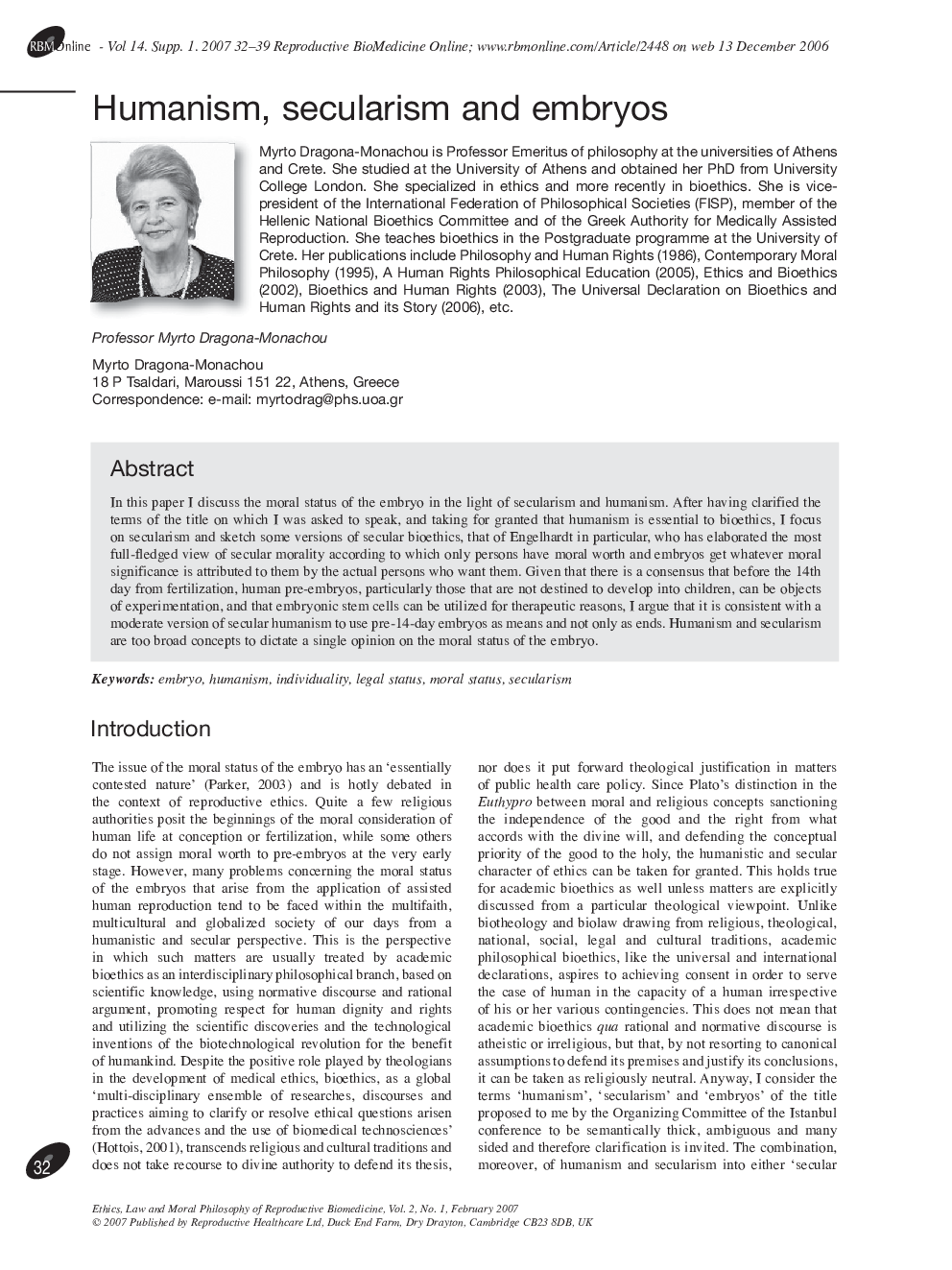| کد مقاله | کد نشریه | سال انتشار | مقاله انگلیسی | نسخه تمام متن |
|---|---|---|---|---|
| 3973477 | 1256858 | 2007 | 8 صفحه PDF | دانلود رایگان |

In this paper I discuss the moral status of the embryo in the light of secularism and humanism. After having clarified the terms of the title on which I was asked to speak, and taking for granted that humanism is essential to bioethics, I focus on secularism and sketch some versions of secular bioethics, that of Engelhardt in particular, who has elaborated the most full-fledged view of secular morality according to which only persons have moral worth and embryos get whatever moral significance is attributed to them by the actual persons who want them. Given that there is a consensus that before the 14th day from fertilization, human pre-embryos, particularly those that are not destined to develop into children, can be objects of experimentation, and that embryonic stem cells can be utilized for therapeutic reasons, I argue that it is consistent with a moderate version of secular humanism to use pre-14-day embryos as means and not only as ends. Humanism and secularism are too broad concepts to dictate a single opinion on the moral status of the embryo.
Journal: Reproductive BioMedicine Online - Volume 14, Supplement 1, 2007, Pages 32-39